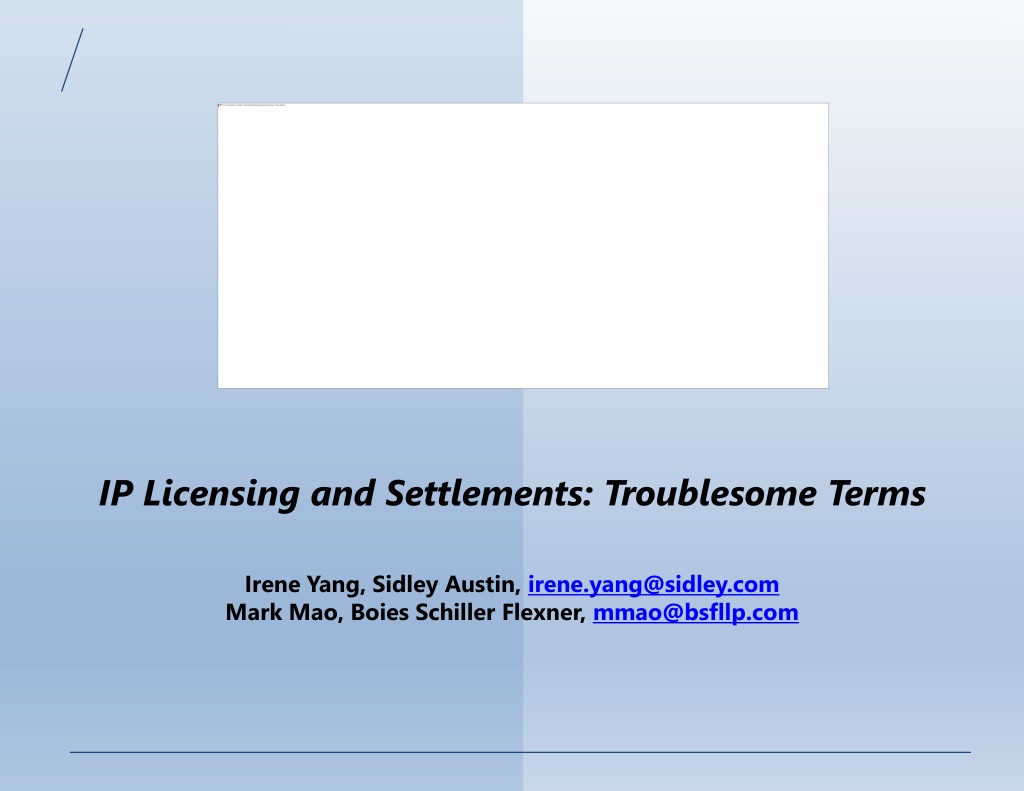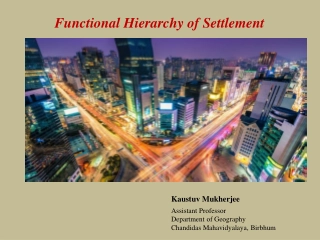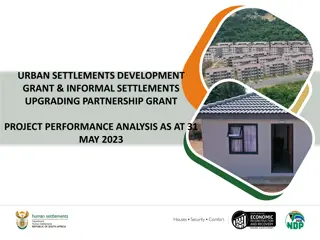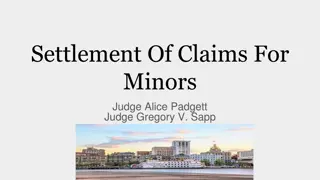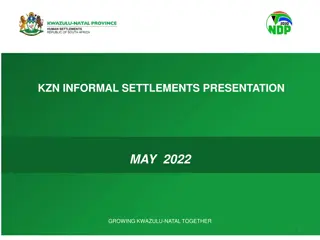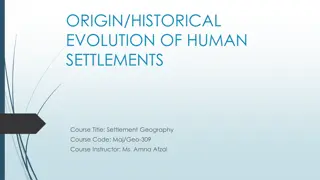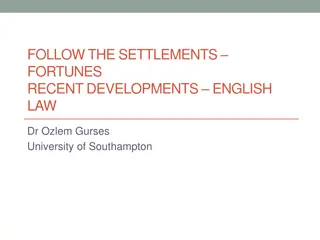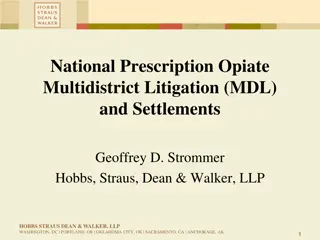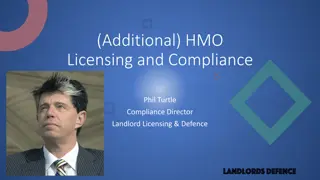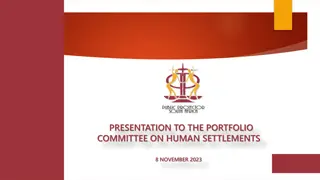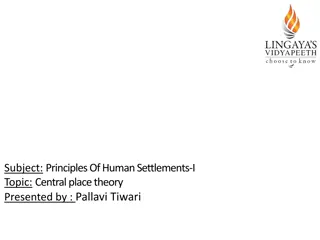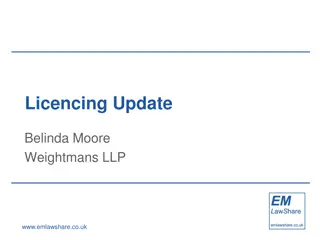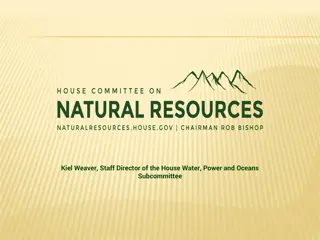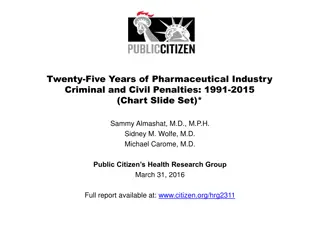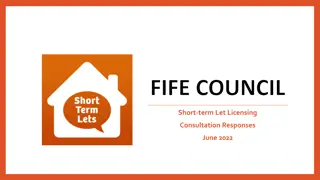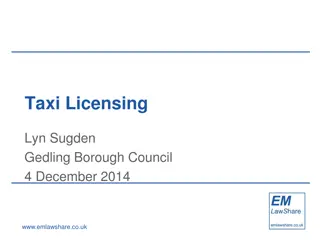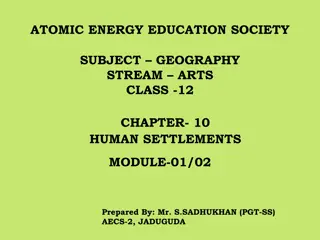IP Licensing and Settlements: Key Provisions and Case Studies
Explore important provisions like forum selection and bankruptcy in IP licensing agreements, along with settlement provisions through recent case studies. Learn about enforcing arbitral awards globally and the significance of the New York Convention. Dive into real-world scenarios involving NDA clauses, arbitration clauses in patent disputes, and international conventions affecting IP disputes.
Uploaded on Sep 08, 2024 | 1 Views
Download Presentation

Please find below an Image/Link to download the presentation.
The content on the website is provided AS IS for your information and personal use only. It may not be sold, licensed, or shared on other websites without obtaining consent from the author. Download presentation by click this link. If you encounter any issues during the download, it is possible that the publisher has removed the file from their server.
E N D
Presentation Transcript
IP Licensing and Settlements: Troublesome Terms Irene Yang, Sidley Austin, irene.yang@sidley.com Mark Mao, Boies Schiller Flexner, mmao@bsfllp.com
1. Forum Selection Provisions 2. Bankruptcy Provisions 3. Settlement Provisions
Forum Selection Provisions Nippon Shinyaku Co., Ltd. v. Sarepta Therapeutics, Inc., 25 F. 4th 998 (Fed. Cir. Feb. 8, 2022) The parties agreed in an NDA not to sue each other for a certain period of time, and that any potential action filed must be adjudicated in the District of Delaware. When the covenant not to sue expired, the alleged infringer filed seven IPR petitions and the patentee responded by suing for infringement and breach of contract. The patentee then moved to enjoin the IPRs for violating the forum- selection clause, which the district court denied. The Federal Circuit reversed and remanded. It rejected the district court s determination that the clause only applied to district court proceedings. The forum-selection clause required that all potential actions during the two-year window be brought in the District of Delaware. Potential actions was defined to include administrative proceedings, so it precluded the IPRs, because parties can bargain away IPR rights.
Forum Selection Provisions Max Semiconductor v. Rohm Semiconductor, Inc. (In re: MaxPower Semiconductor Inc.), 569 F. Supp. 3d 1013 (N.D. Cal. Oct. 29, 2021) Rohm took a technology license agreement from MaxPower including, but not limited to, patents. The agreement contained a broad arbitration clause requiring the parties to arbitrate all disputes arising from the agreement and assigning questions of arbitrability to the arbitrator. In the parallel litigation in the Northern District of California, MaxPower sought to enjoin Rohm from pursuing IPRs. Siding with MaxPower, the court held that the 35 USC 294(a) language requiring that arbitration clauses in patent disputes "'shall be valid, irrevocable, and enforceable applies with equal force to administrative adjudications. The court also noted that it was not enjoining the PTAB from proceeding, that it is ordering Rohm to terminate the IPRs, but it may have the authority to order the PTAB. (Following this injunction, Rohm filed unopposed motions to terminate the IPRs, which the PTAB granted.)
Forum Selection Provisions BUT due to international conventions, the potential for enforcing arbitral awards worldwide is arguably greater than that for court judgments. As there may be no point in obtaining a court judgment that cannot be enforced against certain assets, this often results in choosing arbitration for international contracts. Amongst the most important enforcement conventions are the 1958 United Nations Convention on the Recognition and Enforcement of Foreign Arbitral Awards (known as the New York Convention). More than 145 countries are party to the New York Convention including China each of which broadly agrees to enforce arbitral awards made in other contracting states subject only to limited grounds for objection. In the recent case of Oriental Prime Shipping Co., Limited v. Hong Glory Intern l Shipping Co. Limited (2021), the Shanghai Higher People s Court reaffirmed the Shanghai Maritime Court s decision to recognize and enforce a foreign arbitral award against a Marshall Island company by finding the Marshall Island company was domiciled in Mainland China through having a principal place of business in Shanghai.
Bankruptcy Provisions The Bankruptcy Code generally permits a bankruptcy trustee, subject to court approval based on a business judgment standard or review, to assume or reject each of the company's executory contracts, 11 USC 365(a). A contract is executory if material obligations remain for the parties to perform. Many types of IP licenses are considered executory as a result of obligations remaining on both sides. The code further permits the trustee to assign to a 3rd party an assumed contract even if assignment is otherwise prohibited (e.g., contract or applicable law). 11 USC 365(f)(1). 11 U.S.C. 362 automatic stay provision of the bankruptcy code kicks in once a bankruptcy petition is filed 11 U.S.C. 108 extension of time applies to certain deadlines 11 U.S.C. 365(n) if the debtor or trustee rejects the license agreement (executory contract), the licensee can treat the contract as terminated if the rejection amounts to a breach, or it can retain its rights in exchange for continuing to make royalty payments Unless and until the trustee rejects the contract, payments continue
Bankruptcy Provisions Twitter, Inc. v. Youtoo Techs., LLC, Case No. IPR2017-00829 While IPR petitions were pending, patent owner Youtoo filed for Chapter 7 bankruptcy. Youtoo moved for a stay, arguing that the IPR was automatically stayed under 362 as administrative proceedings. Twitter opposed, arguing that the IPR is an exercise of the government s regulatory power because IPRs are a continuation of an action by a governmental unit and the purpose of IPRs is to protect the public interest, not adjudicate private rights. The trustee agreed that the automatic stay applies. Twitter moved in bankruptcy court (W.D. Okla.) for a determination that the automatic stay does not apply or that the stay should be lifted. The bankruptcy court denied Twitter s motion in part, holding that the automatic stay applies. Before the bankruptcy court could rule on Twitter s motion seeking to lift the stay, the parties reached agreement and allowed the IPR proceedings to continue.
Bankruptcy Provisions Mission Product Holdings, Inc. v. Tempnology, LLC, 139 S. Ct. 1652 (2019) Case applies 365(n) to a trademark case and provides background on how courts look at 365(n) issues, even though trademarks are not technically covered by 365(n). Debtor licensor Tempnology made clothing and accessories that stay cool during exercise (Coolcore). It entered into a non-exclusive license with Mission Product Holdings to distribute Coolcore products in the US and use the Coolcore trademarks. Tempnology filed for Chapter 11 bankruptcy before the agreement expired and rejected the license agreement. Issue: does the debtor licensor s rejection of an executory contract (i.e., a contract that neither party has finished performing) that provides a non-exclusive license to trademark rights deprive the licensee of its rights to use the trademark? No. We hold it does not. A rejection breaches a contract but does not rescind it. And that means all the rights that would ordinarily survive a contract breach, including those conveyed here, remain in place. (139 S. Ct. 1657-58.) Section 365(a) lets the debtor or trustee decide whether it wants to assume the contract and fulfill its obligations, benefitting from the licensee s performance. Or it can reject the contract and no longer perform its duties. Section 365(g) says rejection is a breach of the contract. The licensee has a claim for damages, which is unlikely to ever be paid in full. Section 365(n) is similar: if the debtor licensor rejects the agreement, the licensee can continue to use the IP as long as it continues the required payments. 365(n) doesn t cover trademarks. Justice Sotomayor concurred: the Court is not saying that every trademark licensee can continue to use licensed marks after rejection. And 365(n)-covered IP has different rules. Justice Gorsuch dissented: this question is abstract and it is doubtful the Court had jurisdiction.
Bankruptcy Provisions In the current economic environment, be wary of and think thoughtfully about: Assignability/assumption clauses The Bankruptcy Code specifically states that a bankruptcy trustee may not assign a contract where the default position is to excuse the counterparty to the agreement from accepting such an assignment. See 11 U.S.C. 365(c). Thus, although a non-debtor licensor cannot terminate a license simply due to a debtor licensee s insolvency or filing of a bankruptcy petition under the Bankruptcy Code, such non-debtor licensor may ultimately prevent the debtor licensee from assigning its interest to a third party. Such non-debtor licensor may then ultimately be able to seek relief from the Bankruptcy Code s automatic stay to terminate the license that cannot be assigned, and arguably therefore cannot be assumed. However, where the license agreement expressly allows the licensee to assign the license agreement (whether generally or specifically in connection with a sale of all or substantially all of the licensee s assets), then an executory intellectual property license could be assignable under applicable law and not be terminable by the licensor. Choice of law & venue provisions There is a split in the bankruptcy case law whether a contract that cannot be assigned also cannot be assumed (i.e, actual versus hypothetical tests, with former being better for debtors), which has implications for a debtor in bankruptcy, and licensors seeking to take their IP elsewhere. Source code escrows Require release of source code upon bankruptcy of the licensor. Not something you want as a licensor. Intellectual property developed after the bankruptcy filing Negotiate these, and think about your covenants not to sue.
Settlement Provisions Hypothetical: Licensor and licensee are competitors. Licensor grants an exclusive license to certain patents to enable licensee to make, use, and sell product A. Licensee provides ongoing royalty payments. Some licensor considerations What if the licensee tries to get around the agreement and avoid making payments via trivial design-around? What happens if the licensee incorporates A into a suite of products, or uses A to develop a different, highly lucrative product B? What is the scope of permissible improvements to A; should the licensee pay more for certain improvements? How do you articulate what changes to A are permissible? Some licensee considerations What if the licensor tries to get around the agreement and compete with the licensee s product by implementing a de minimis tweak? What improvements to A can the licensee make and still be licensed? How do you articulate what changes to A are permissible?
Irene Yang, Sidley Austin, irene.yang@sidley.com Mark Mao, Boies Schiller Flexner, mmao@bsfllp.com
